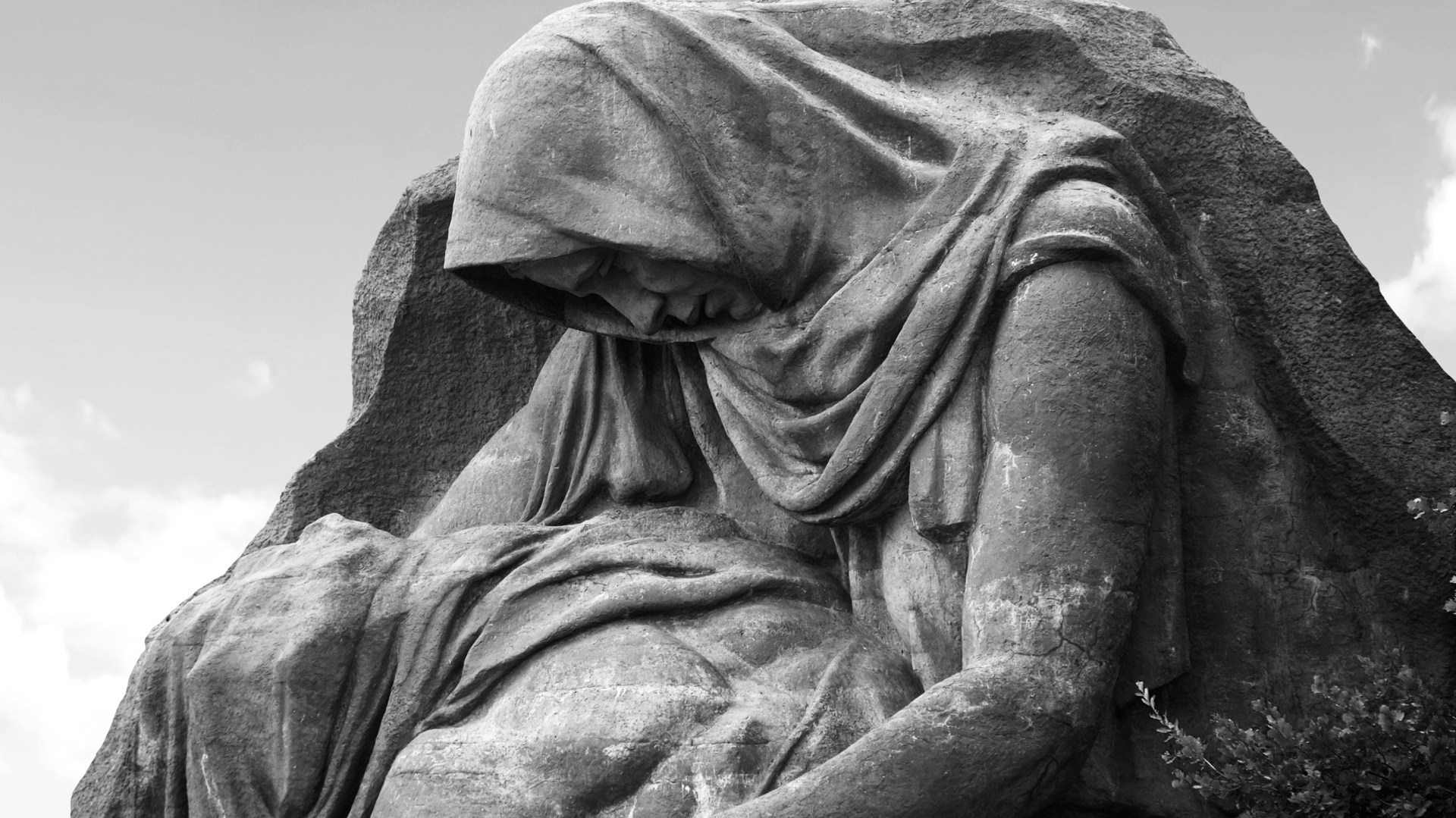We live in a world with untold amounts of pain from war, famine, and oppression. But our worship sometimes leaves little room for emotions of lament. In The Message of Lamentations (IVP Academic), Christopher J. H. Wright, Old Testament scholar and international ministries director for Langham Partnership International, introduces readers to one of the Bible’s most heartbreaking, poetic, and neglected books. CT editor at large Rob Moll interviewed Wright about the role of Lamentations in understanding—and protesting—human suffering.
What is the likely setting in which Lamentations was written?
Almost certainly, it is the immediate aftermath of the destruction of Jerusalem by the Babylonians in 587 B.C. It was the most traumatic moment in Israel’s Old Testament history. The writer paints a portrait of utter devastation and appalling suffering: starvation, disease, slaughter, rape, scavenging, looting, and the desecration of holy things.
Unlike in Job and many of the Psalms, God says nothing to the writer of Lamentations. What should we make of his silence?
One commentator, Kathleen O’Connor, calls God’s silence “inspired.” This resonates on three levels. First, God allows the suffering people to have their full say. He listens, without interrupting to comfort or correct. Second, the Prophets had already explained that this would happen and why. And third, although God does not speak as a character in the book, he speaks by including it in his Word, within the canon of Scripture.
How does Lamentations differ from Job or the Psalms?
Job’s suffering is clearly undeserved. In the Psalms, suffering is sometimes the result of sin, sometimes the result of wickedness of enemies, and sometimes simply inexplicable. But even though the suffering of Jerusalem happened at the hands of the evil Babylonian empire, it is recognized as the outworking of God’s judgment on moral, social, and spiritual degradation. Lamentations accepts God’s punishment while recoiling from its awful severity.
What does Lamentations offer us today?
There are people who are, at this moment, seeing murder, rape, the loss of homes and loved ones, and the destruction of holy places. For them, Lamentations describes reality. We can and should lament with them.
Lamentations, as O’Connor says, provides a bottle for the tears of the world. We cry out to God for those who suffer so terribly from the effects of sin and evil and sheer folly: in wars, racial conflicts, and all manner of injustice and oppression. Lamentations holds up to God the sheer horror of what this suffering feels like, and appeals to him to act justly, to demonstrate his faithfulness. The book affirms God’s sovereignty—his throne is still in heaven even as the devastation of his temple happens on earth—in its closing verses.
What role should a book like Lamentations play in our worship, corporate prayers, and sermons?
The absence of lament, at least in many Western churches, is a great loss. We have quietly airbrushed great swaths of the Bible from our consciousness. We sing songs based on the Psalms, but often leave out the bits about suffering or oppression. We ignore the fact that in the Psalms, “lament,” or protest, is the largest category.
So much of our worship is cover-up: pretending to have emotions we don’t really feel, or smothering the emotions we do. That is not praise. It simply leaves us to pick up our suffering again on the way out—without bringing it into God’s presence or hurling it at him in questioning (but trusting) protest. Spending time in Lamentations helps us learn how to plumb the depths of lament as well as scale the heights of rejoicing.
How has your perspective on global Christianity informed your reading of Lamentations?
I have friends and Langham Partnership coworkers in many countries where God’s people are experiencing poverty, persecution, or outright destruction. And yet I know, because they tell me, that despite these horrors, they trust God and find him at work in amazing ways.
Lamentations helps us face the world’s suffering and weep over and protest it. But it does so within the grand narrative of Scripture, with its redemptive center in the cross and resurrection of Christ, and its glorious, hope-filled climax in the new creation, in which all suffering, weeping, and death will be no more.
UPDATE: For more on lament see the interview with Soong-Chan Rah on preachingtoday.com on the beauty and power of lament. Also, listen to Mark Denver’s model sermon on Lamentations 3, “God Uses Suffering for Our Good.”











